You can never be sure if someone you encounter online is actually who they appear to be. Many people are fabricating the snippets of their personality they share online, some more than others. It’s easy to do so, as the anonymity of the Internet allows us to get away with it. Even those who are close to us may be doing it without us ever knowing it.
Like it happened to this teen, whose stepmom was lying about their family online to gain an online presence and coach other parents in blended households. After finding out about her fake persona on social media, her stepson decided to expose her during one of her lives, with receipts and everything.
Scroll down to find the full story and conversation with senior therapist Sally Baker, clinical psychologist Dr. Sabrina Romanoff, and media psychologist Dr. Joanne Broder, who kindly agreed to share their insights on why people lie online.
Many people are fabricating their personas online

Image credits: setofotografias / envato (not the actual photo)
As did this woman, whose stepson exposed her during one of her lives
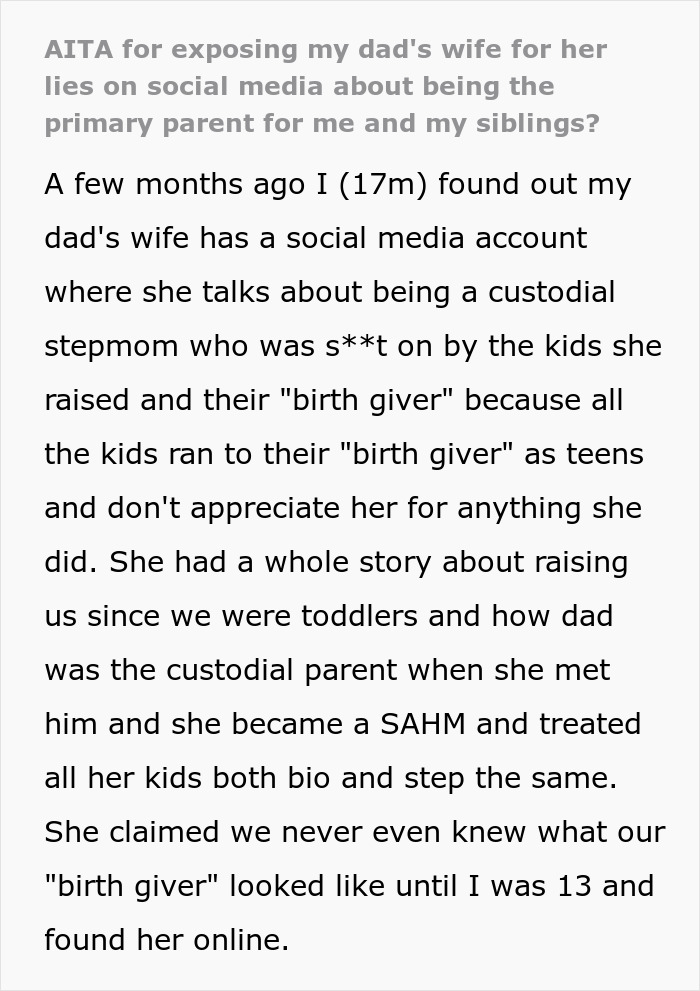
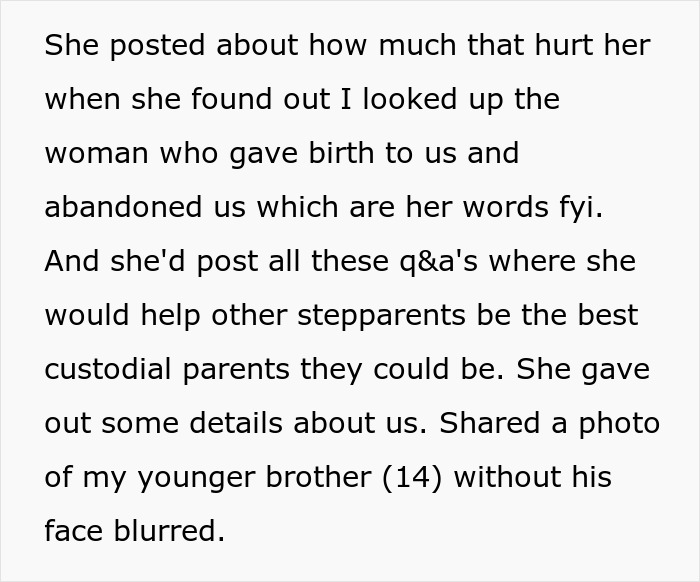
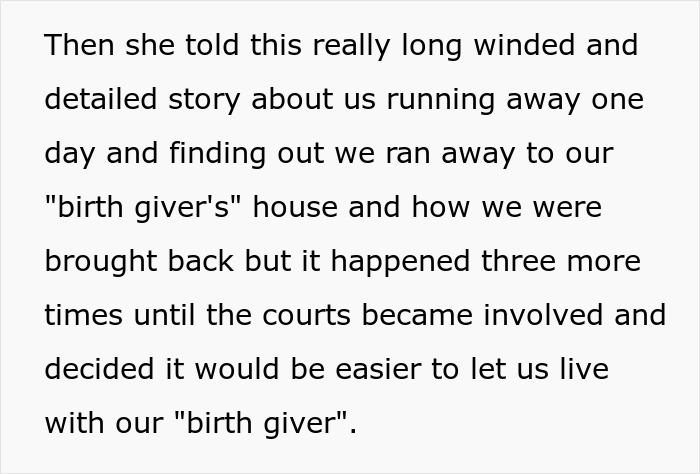
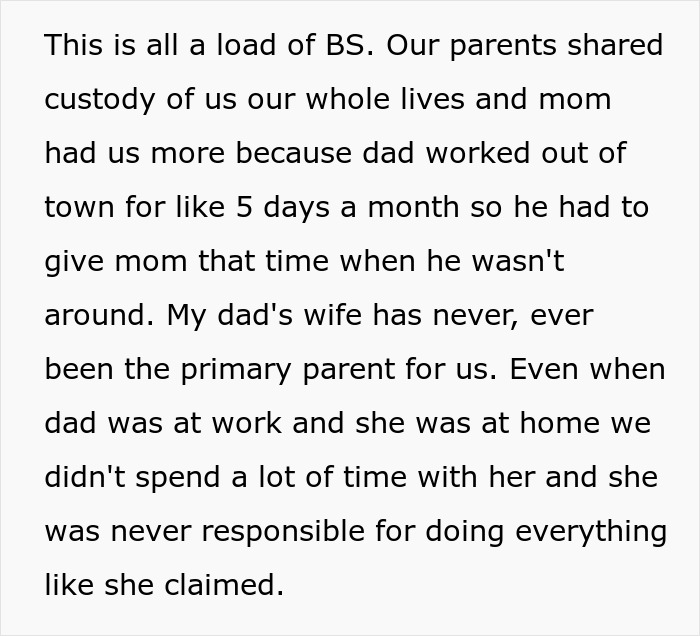
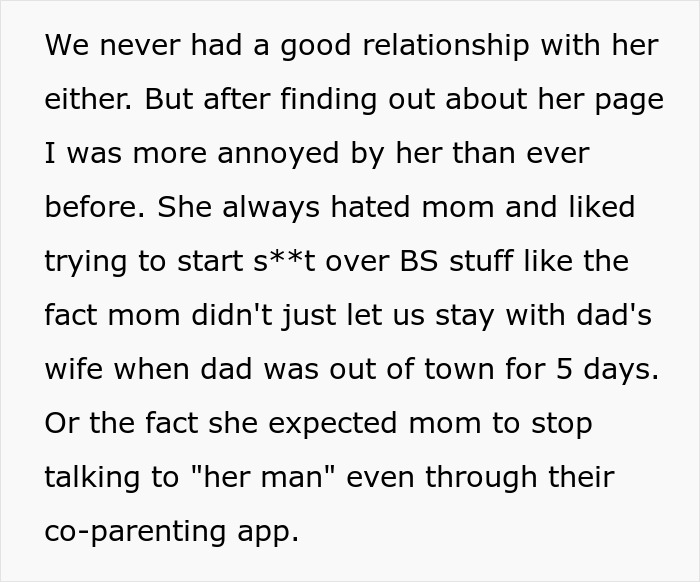
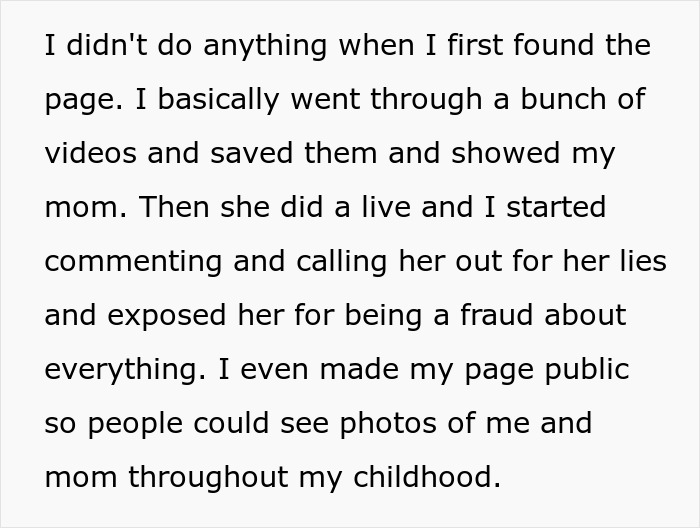

Image credits: Iakobchuk / envato (not the actual photo)
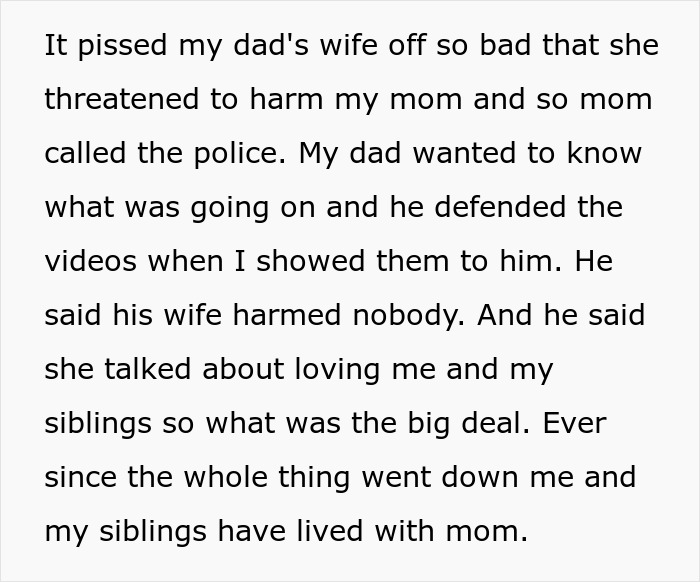
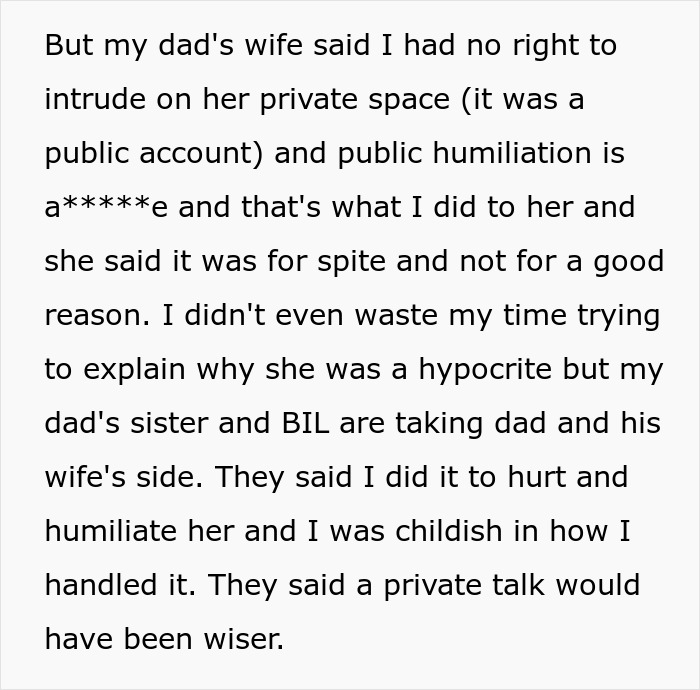

Image credits: Korizintin
“Lies that harm others or that involve false claims of identity, illness or trauma can do real damage”
Most people who fabricate or exaggerate their lives online don’t do that out of malicious intent, experts say. They simply want to receive the approval of others.
“What they often do is curate a version of themselves that they wish were true. The online world rewards attention and approval, and that can make anyone vulnerable to presenting an idealized life,” senior therapist Sally Baker explains.
“The gap between how someone feels inside and what they show online can be wide, especially if they are struggling with low self-esteem or fear of being overlooked. Exaggeration becomes a form of protection. It allows people to feel seen without feeling exposed.”
Even though most people don’t set out to lie maliciously, it can still have negative consequences for themselves and others.
“What gets posted online is highly traceable, leaves a forever footprint, and will be connected back to you for your entire life. People take screenshots, databases are saved, and posts get recovered. You should never post anything online, particularly a lie that you don’t want to haunt you for the rest of your life,” advises clinical psychologist Dr. Sabrina Romanoff.
“You should have a strong filter when considering if something should get posted and create stronger internal barriers to pressing post. Unfortunately, the ease of sharing damaging information and lies about our life is as easy as a tap of a button, and people should place more systems to be less impulsive, and more intentional when it comes to what is shared with the world.”
“Lies that harm others or that involve false claims of identity, illness or trauma can do real damage and can unravel trust very quickly,” Baker adds. “Equally, posting a version of yourself that is too perfect for too long can be damaging in quieter ways. It can stop you from seeking help, being authentic or forming genuine connections. The safest rule is to stay close to the truth. If something would make you feel ashamed if it were found out, it is probably best left unsaid.”
“Publicly calling someone out can escalate conflict and rarely leads to understanding”
People who get caught up in their online lies may even become detached from their true selves. “A human living in a fake lifestyle is more like an avatar. People who lie will create more problems for themselves, stemming from a lack of trust in them,” media psychologist Dr. Joanne Broder says.
“The longer it continues, the more detached a person becomes from who they really are. I have worked with clients who felt trapped in the persona they created online, afraid that being honest would lead to ridicule or rejection. Over time, this can fuel anxiety, loneliness, and even a sense of fraudulence,” Baker notes.
“For those watching, it can also distort their sense of what normal life looks like. Constant exposure to exaggerated perfection can leave followers feeling inadequate, as though everyone else is living better or feeling happier. These false comparisons can quietly chip away at confidence and self-worth.”
If someone knows another person is lying online, they could do nothing about it if their dishonesty is harmless, or address it in private in case it causes harm.
“Publicly calling someone out can escalate conflict and rarely leads to understanding. If the lie is harmless, it might be kinder to do nothing. If it causes harm to others or spreads misinformation, it may be worth addressing privately or reporting through the platform’s proper channels. The key is to act with integrity, not impulse. Ask yourself if the goal is to humiliate or to help,” Baker concludes.
Commenters seemed to side with the stepson
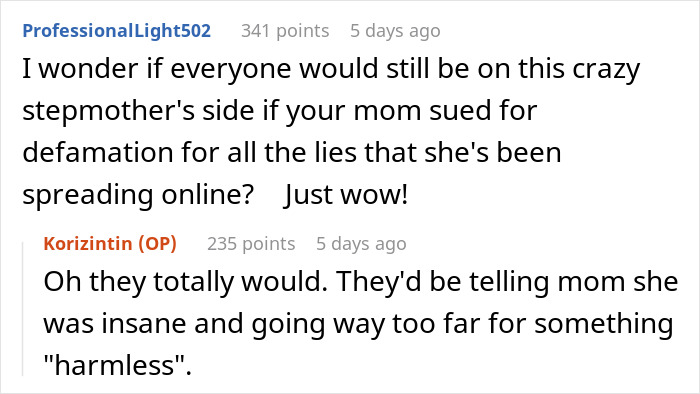

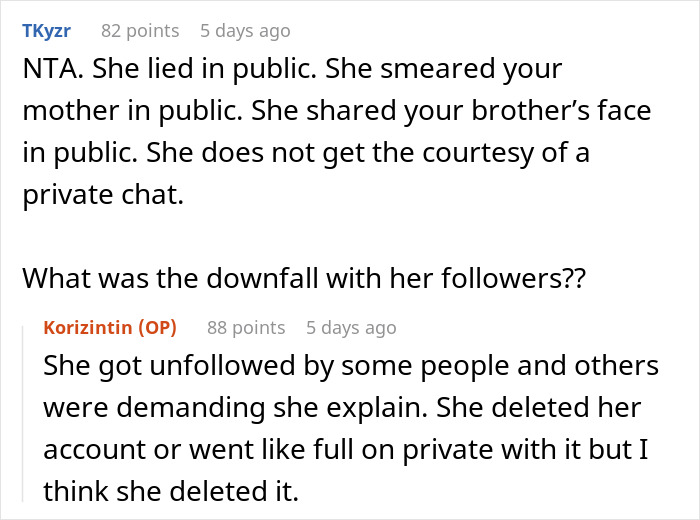
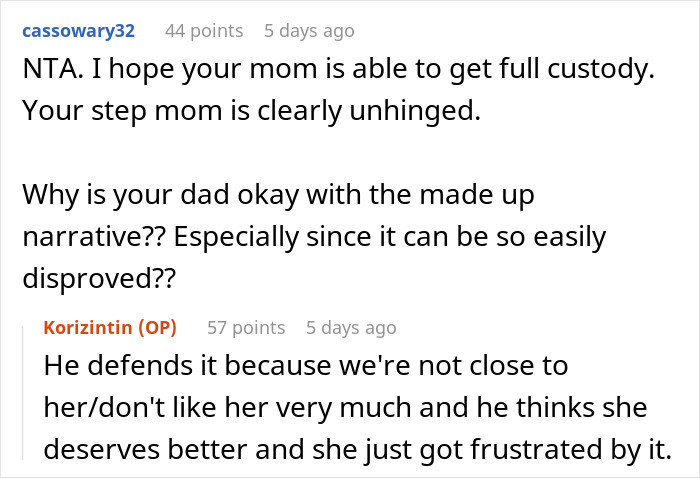

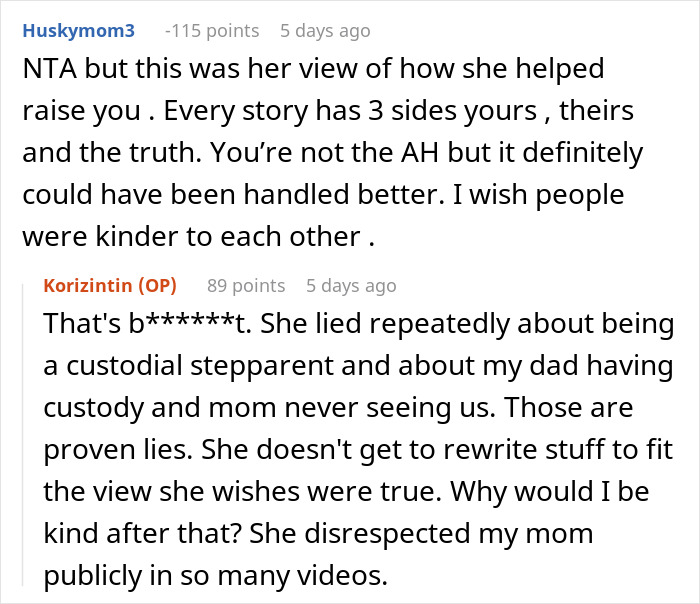
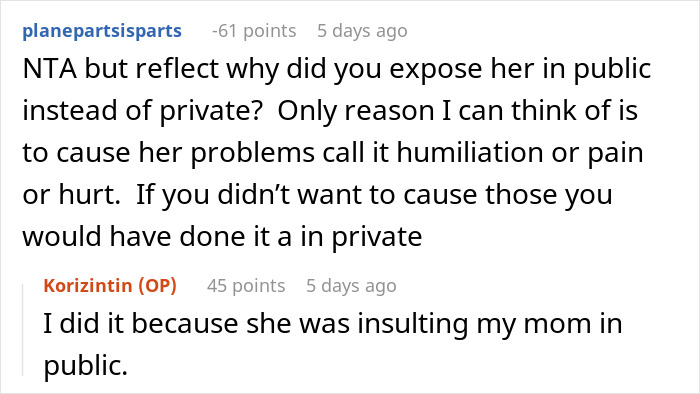
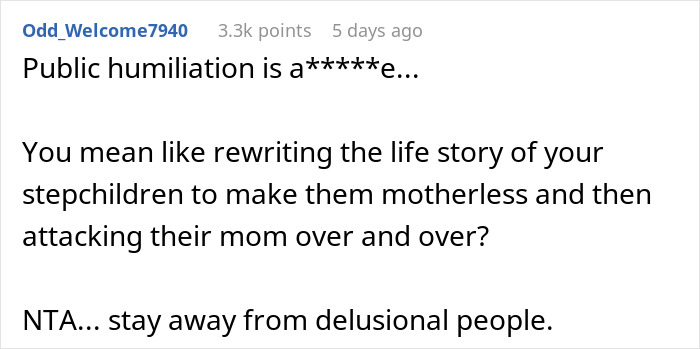
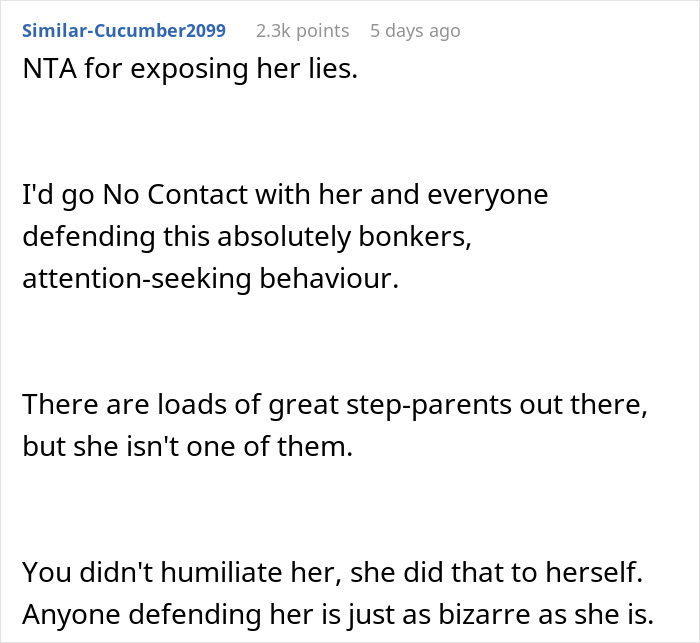
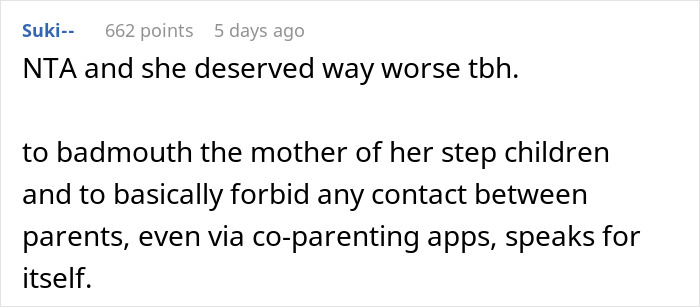
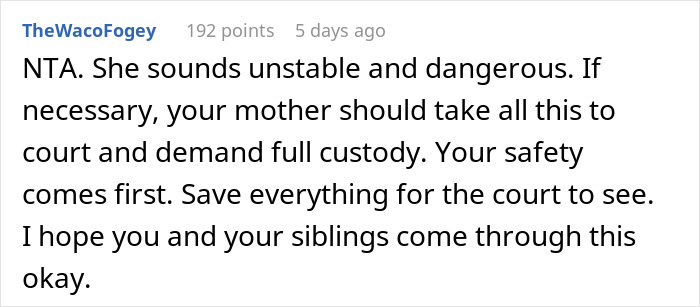
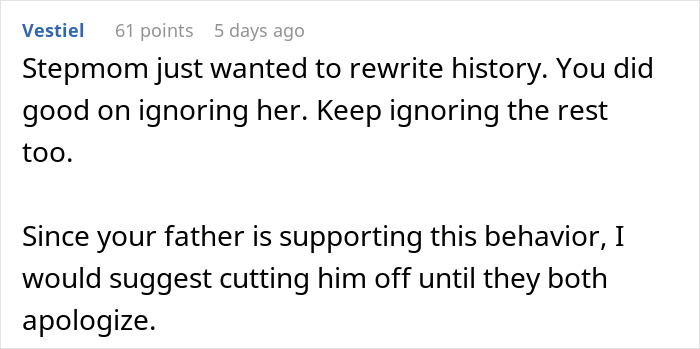
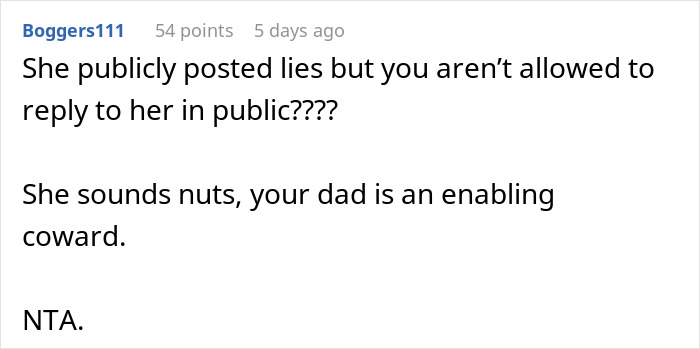
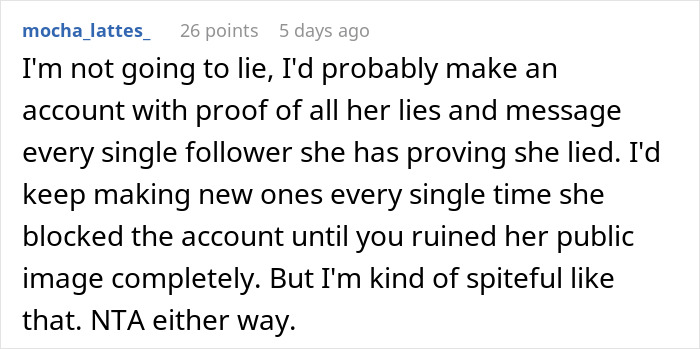
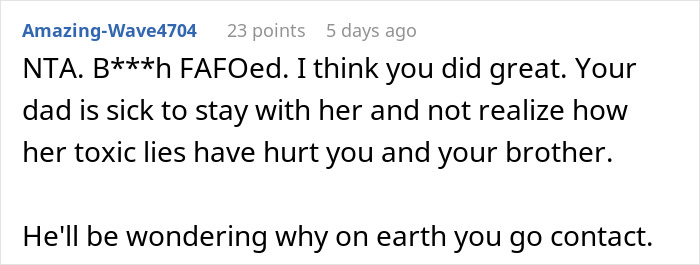
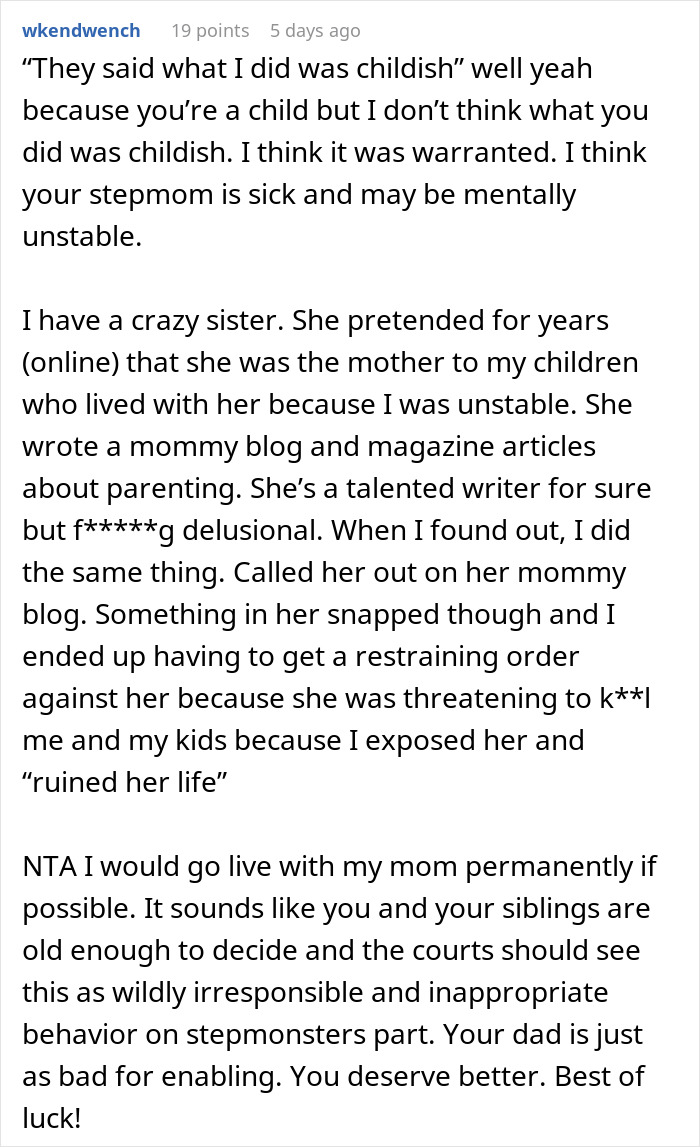
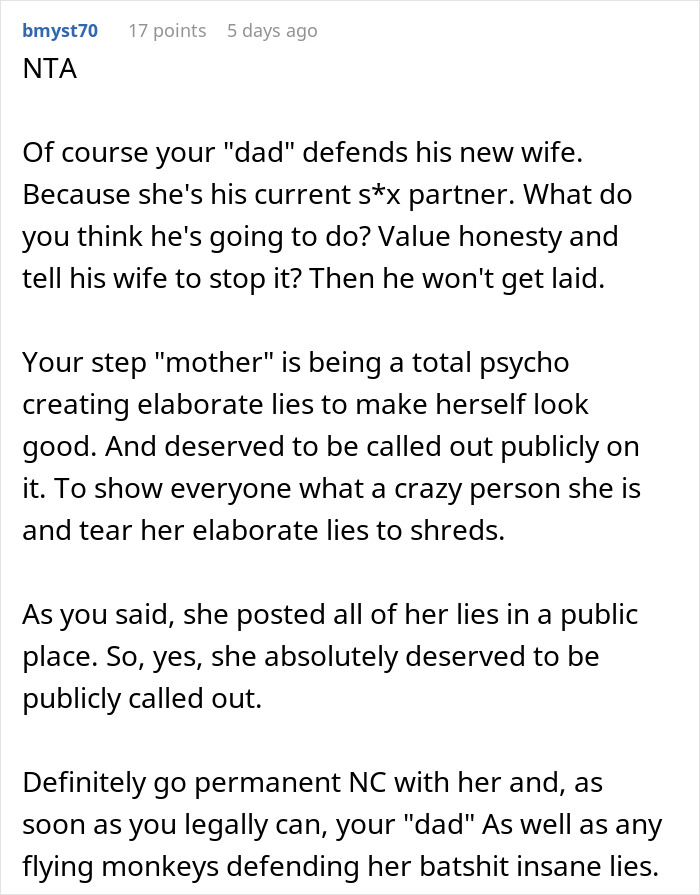

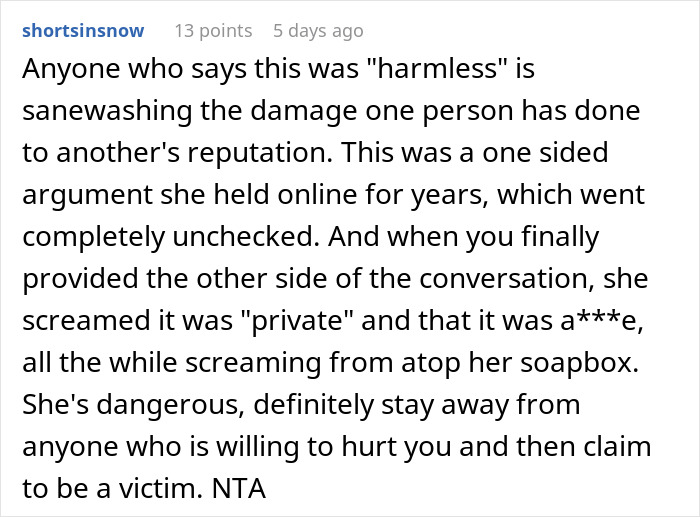


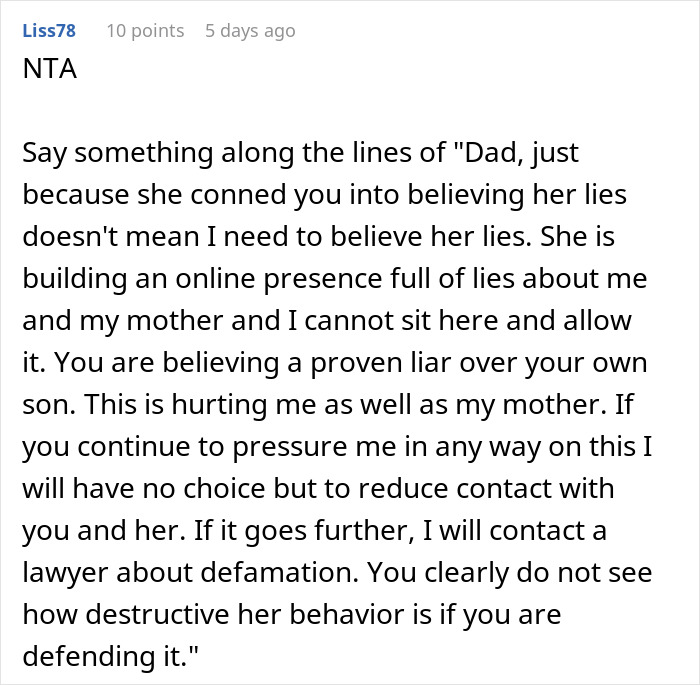

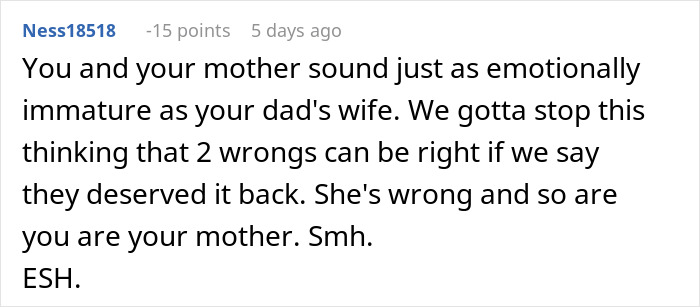

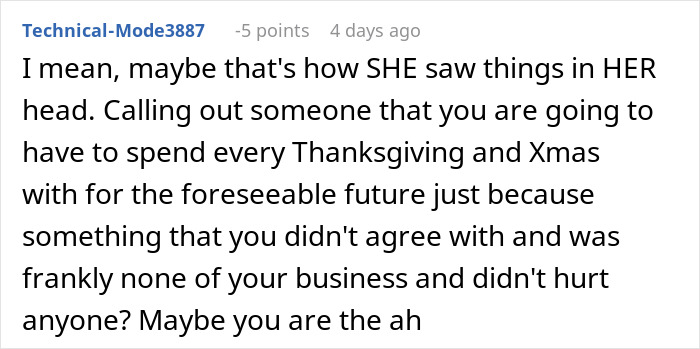
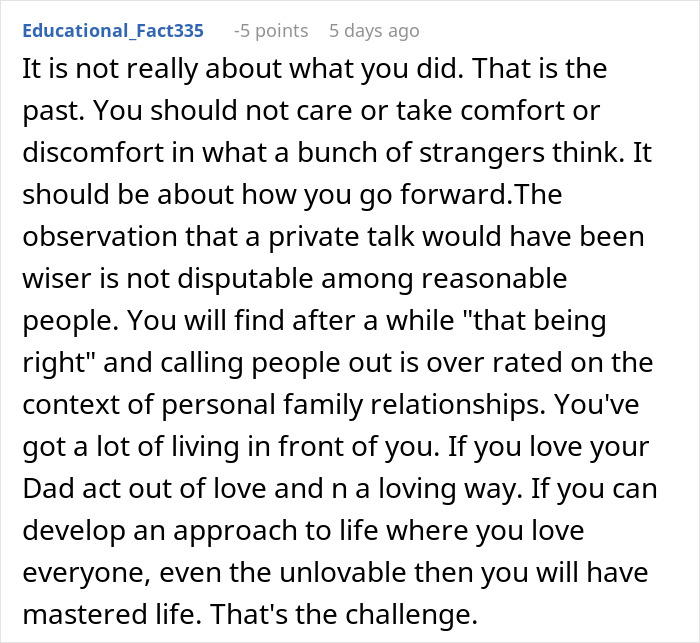
 Follow Us
Follow Us





